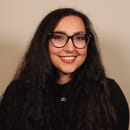Gloria Jean Watkins, known for her all-lowercase pen name bell hooks, is a pioneer for intersectional feminists because she is one of the first people to explore how gender, race, and social class can influence the oppression one experiences in their lifetime. When establishing her pen name, hooks was inspired by her maternal great-grandmother Bell Blair Hooks. She wanted to honor the women in her family. In a society that predominantly focuses on men’s legacies through passing a man’s last name onto his wife and children, hooks thought it would be a refreshing and empowering change to take her great-grandmother’s name instead. According to The Heroine Collective, hooks also made the decision to use an all lower-case font because she wanted to take the attention off of herself and focus it on the problems she addresses in her writing.
Born in 1952 to a lower-class family in Kentucky, hooks attended a segregated school where her passion for learning, writing, and exploring society’s injustices grew. She went on to attend Stanford University and later received a PhD in literature from the University of California Santa Cruz. Today, hooks has published over 30 books on feminist issues, Black womanhood, and Black women’s oppression in a society dominated by the white patriarchy.
hooks’ voice defined second-wave feminism throughout the late 1970s and the 1980s. In 1981, she published Ain’t I a Woman?: Black Women and Feminism, which was named after Sojourner Truth’s speech from 1851. The book discusses why it is significant to study the impact slavery had on Black women, and it became one of the most popular texts of the second-wave feminist generation. Her work is particularly insightful and revolutionary because she addresses the issue of Black men and white women reinforcing the patriarchy that has oppressed Black women.
In the book, hooks wrote: “If women want a feminist revolution—ours is a world that is crying out for feminist revolution—then we must assume responsibility for drawing women together in political solidarity. That means we must assume responsibility for eliminating all the forces that divide women.” Her goal was, and continues to be, to reject the “imperialist white supremacist capitalist patriarchy” through uplifting Black womanhood and calling out social problems that have yet to be addressed publicly.
In her book Feminist Theory: From Margin to Center (1984), hooks used her own definition of feminism. She claimed feminism is “a movement to end sexism, sexist exploitation and oppression,” and according to The Periodic Table of Feminism by Marisa Bate, hooks stood by this definition because it did not present men as an enemy to the feminist movement. Instead, the definition recognizes that sexism is an institutional problem.
hooks also coined the term ‘the oppositional gaze,’ which refers to Laura Mulvey’s ‘male gaze’ theory. The original ‘male gaze’ theory states that women are often depicted in media in ways that reinforce how men view women – as sexual objects. However, according to The Ethics Center, hooks took the theory a step further by noting that the media is “white-washed” and the entertainment industry “reproduces white supremacy.” She believed movies erased and ignored Black womanhood, which is another reason hooks turned to writing to amplify her own personal struggles with oppression. She knew other Black women would be able to relate and wanted to shed light on the stories that were often ignored.
If you’re looking for ways to spend Black History Month, take time to learn from and listen to Black stories. It is up to you to be an active learner. Check out some of bell hooks’ works including her most famous books Feminism Is for Everybody (2000) and All About Love (2000).


